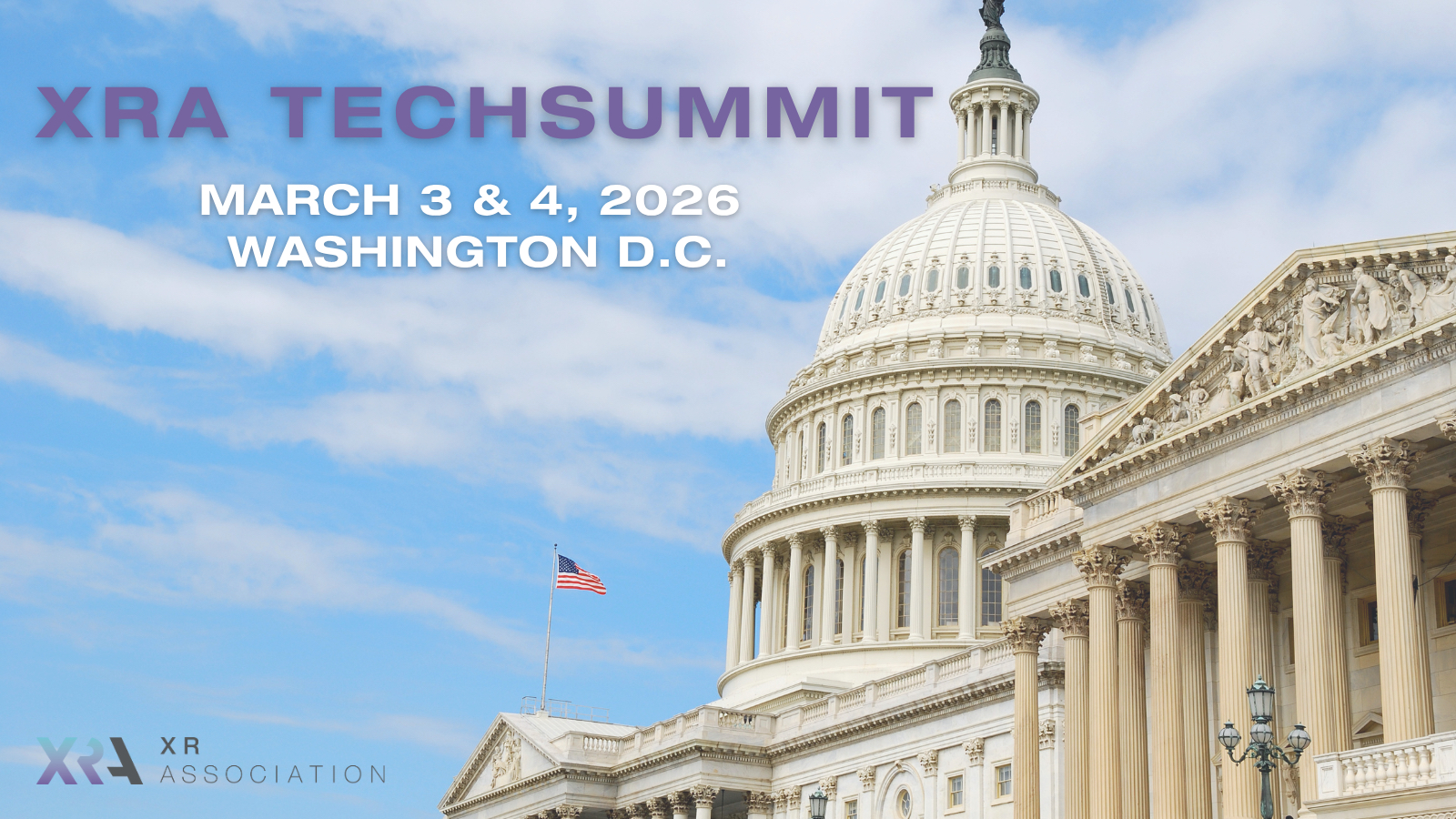THE XR ASSOCIATION DIVES INTO KEY XR POLICY ISSUES, HIGHLIGHTS MEMBER COMPANIES AT THIRD ANNUAL AR/VR POLICY CONFERENCE IN WASHINGTON, DC
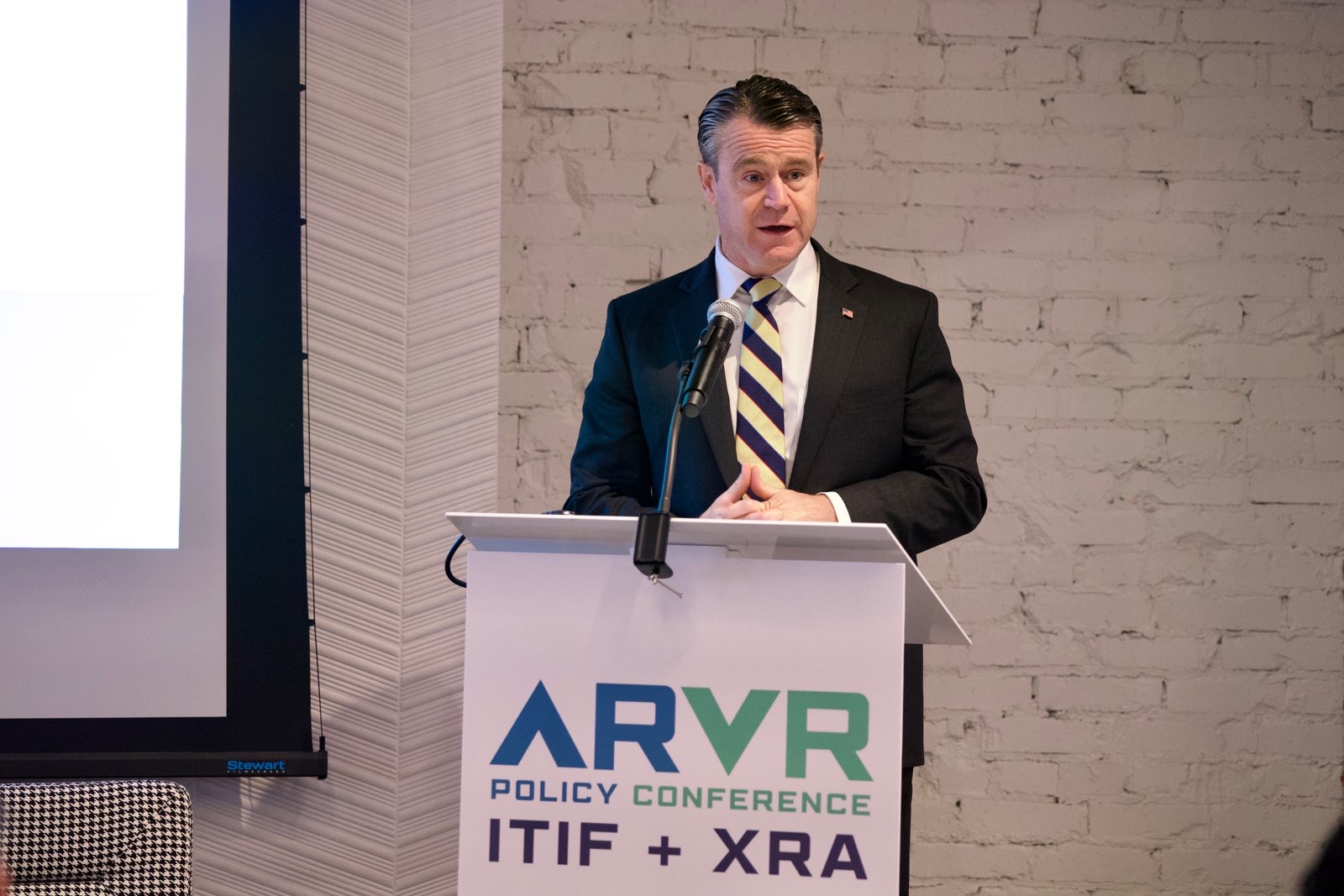
Washington, D.C. – On Thursday, September 14, 2023, the XR Association (XRA) and the Information Technology and Innovation Foundation (ITIF) co-hosted the third annual AR/VR Policy Conference in Washington, D.C. The hybrid event featured multiple panels and lightning talks from key XR industry representatives and champions. The conference highlighted XR technology’s responsible advancement and legislation across different sectors and its impact on federal, state, and international policymaking.
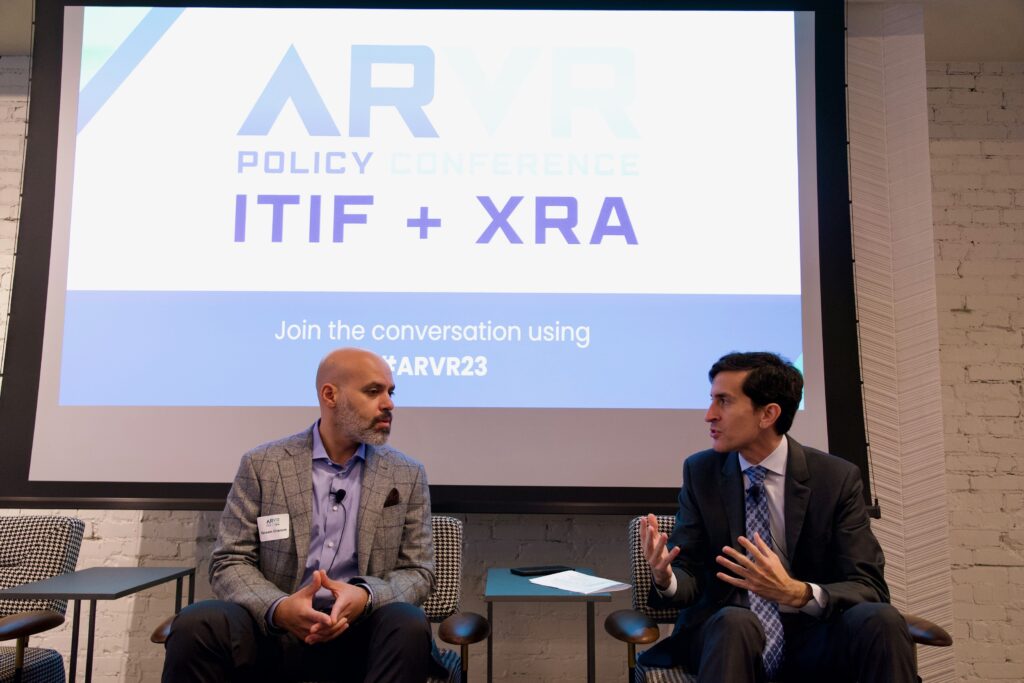
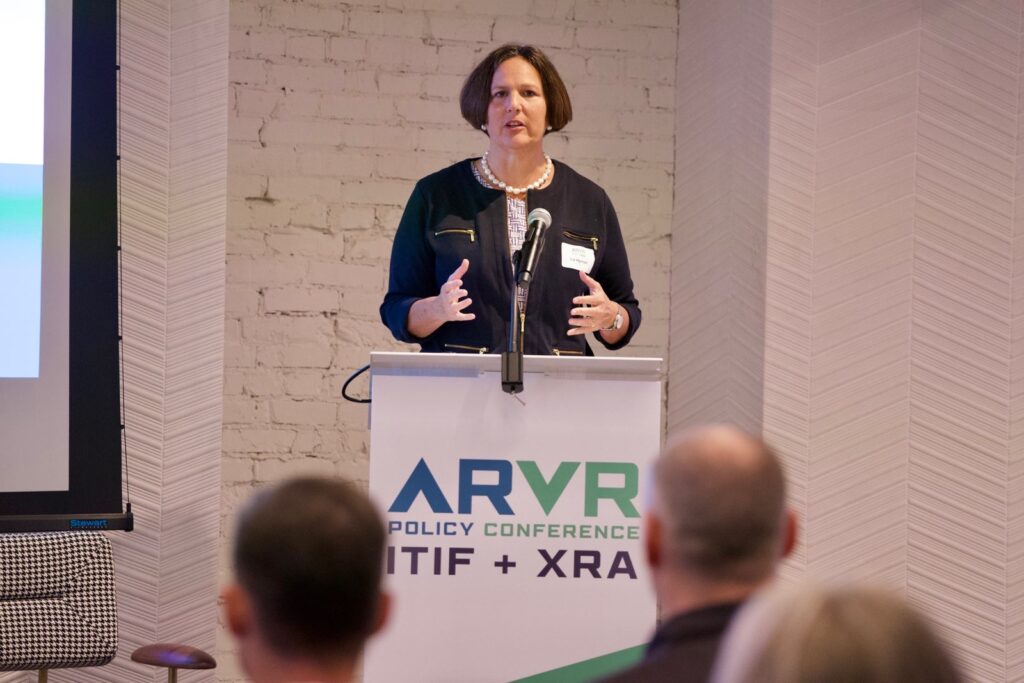
The conference kicked off with opening remarks from ITIF’s Vice President, Daniel Castro, and a keynote address by Senator Todd Young (R-IN). During his keynote address, Senator Young emphasized the importance of investing in the research and development of emerging technologies like XR to strengthen the United States economic competitiveness and bolster national security. Senator Young also spoke on the need for the U.S. Government to become more proficient at leveraging immersive technology. To that end, the Senator highlighted a request he led on for the U.S. Government Accountability Office (GAO) to study how federal agencies currently use XR technology, would like to use XR in the future, and any barriers to implementing immersive technology. Senator Young announced that the study is expected to be published in mid-2024.
The event featured a series of expert discussions and panels exploring dozens of critical XR policy questions, covering everything from United States competitiveness and generative AI to workforce development and education in the metaverse.
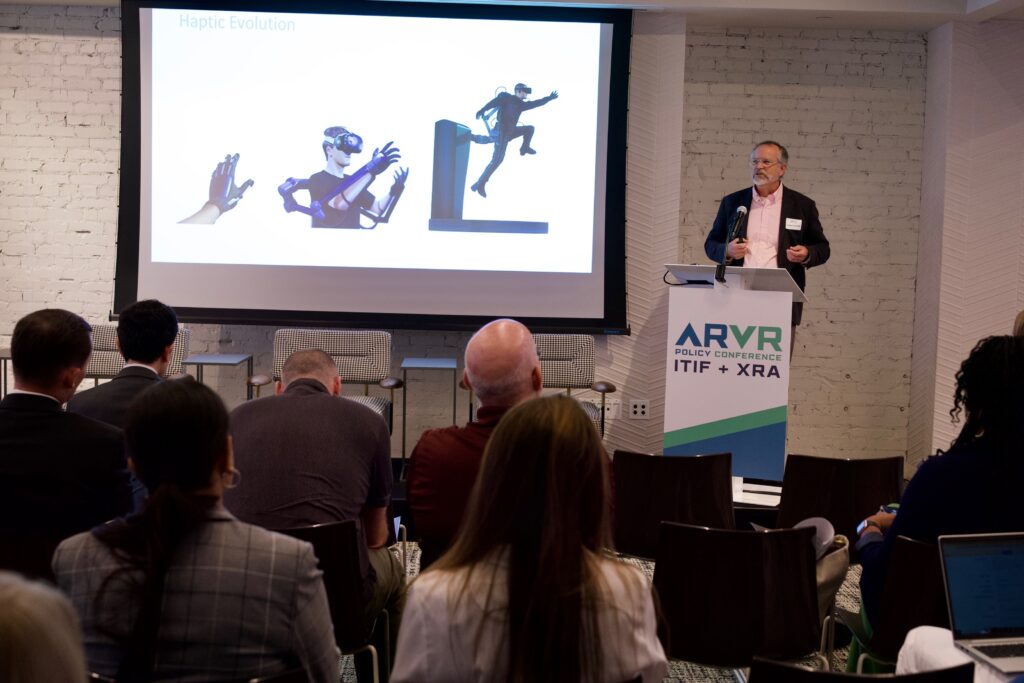
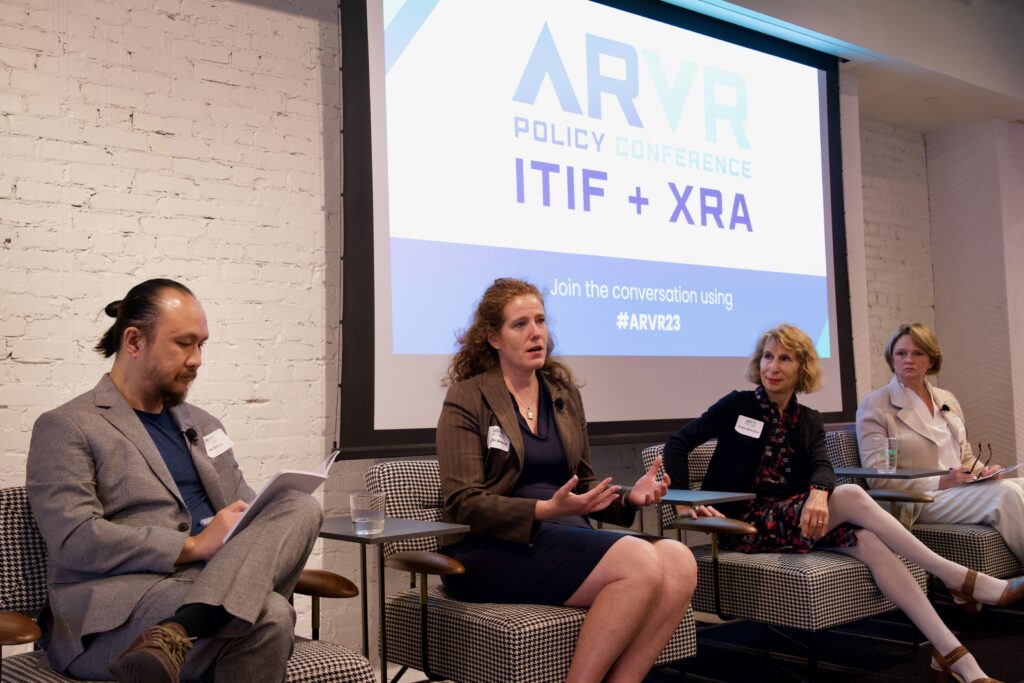
Panelists explored current and future use cases for XR technology beyond entertainment and gaming. XRA’s Senior Vice President of Research and Best Practices, Stephanie Montgomery, led a panel discussion titled, “Back to School in the Metaverse,” where panelists delved into the unique benefits of immersive learning in comparison to other technologies. “I think being a champion [of AR/VR’s education potential] is really important, and I think that can happen at multiple levels and in many different ways,” Monya Ruffin (National Science Foundation) said, adding that more funding is needed to research, develop and adopt AR/VR tools for classroom use.
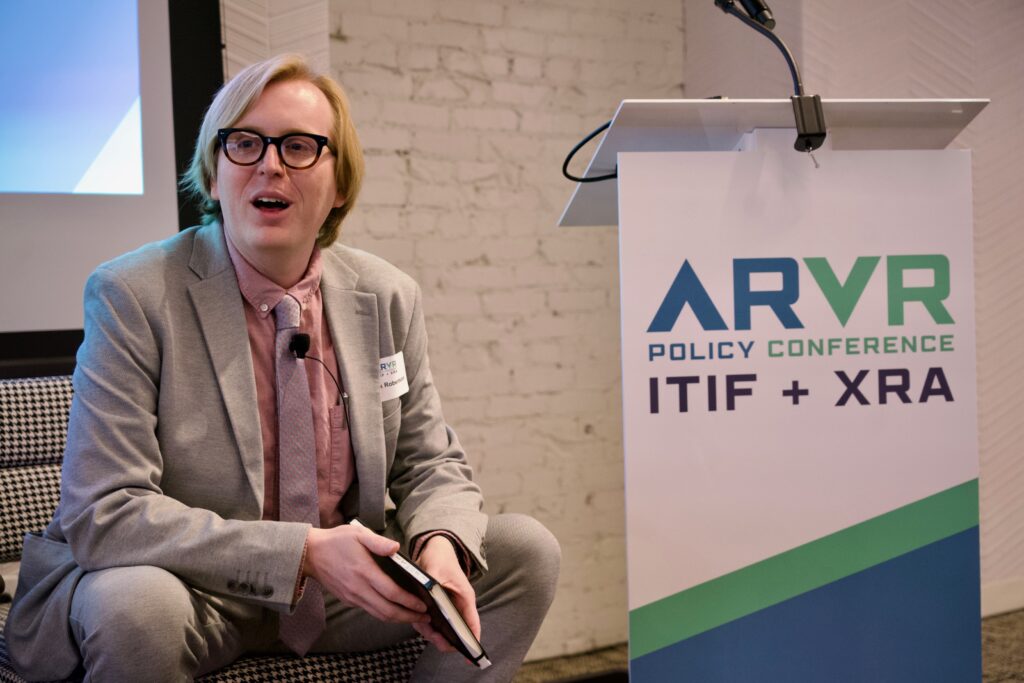
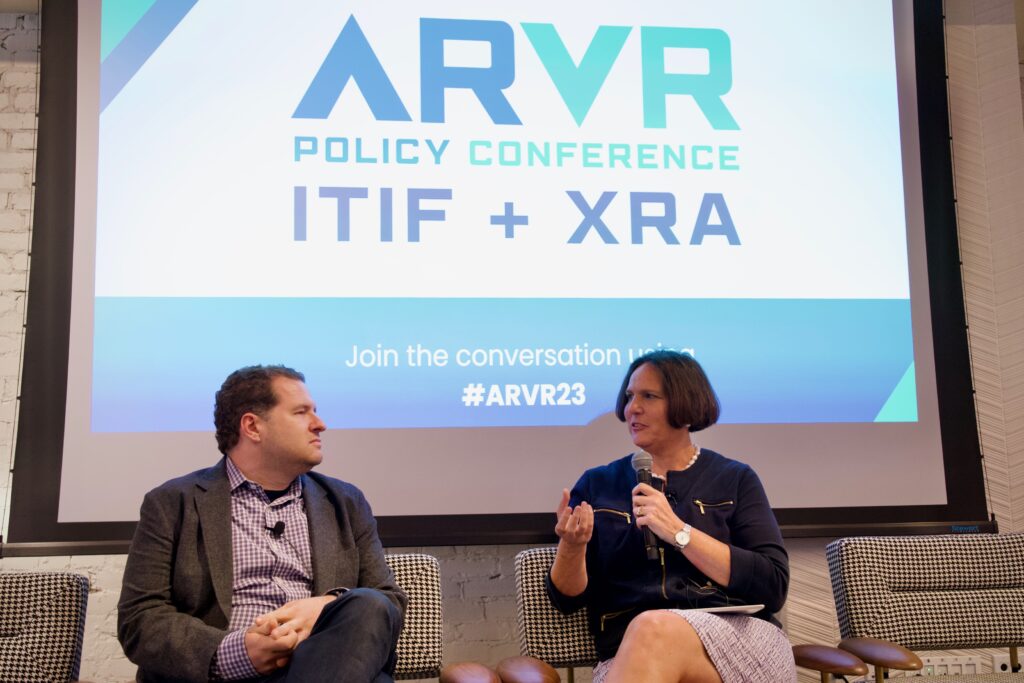
XRA’s Senior Vice President of Public Policy, Joan O’Hara, moderated the panel discussion, “Global Competition, Free Trade, and Democratic Values in the Metaverse,” which explored the role of XR in United States competitiveness and how the United States can work with its allies to promote democratic values and access to foreign markets in the metaverse.
During her panel, O’Hara announced the release of XRA’s Reality Check Primer, which summarizes the key highlights and findings from the forthcoming white paper, Reality Check: Why the U.S. Government Should Nurture XR Development. This paper, researched and co-authored by XRA and The Digital Trade and Data Governance Hub at George Washington University, examines U.S. competitiveness in immersive technologies and takes an honest look at where America stands relative to allies and competitors in fostering the enabling environment needed to support the development, growth, and adoption of XR.
“The sign of an impactful and maturing industry is the quality of the debates and conversations that arise around its use and implementation. This year’s ARVR policy conference was no doubt a great demonstration of the growing maturity of the XR industry and the vital role it will play in our society and our public policy,” said Elizabeth Hyman, CEO of the XR Association. “From the uplifting comments from Senator Todd Young about the importance of immersive technologies as a tool for government and the private sector, particularly in the context of global competitiveness, to the insightful discussions we had around data privacy, use in work force, the intersection of XR with generative AI, and more, the level of discussion was outstanding. We are grateful to all our participants for their contributions, and we are already looking forward to next year!”
Conference attendees had the opportunity to experience XR firsthand during the event’s technology demonstration sessions. XRA member companies Cleanbox Technology, Google, HaptX, HTC, Meta, Qualcomm, Sony, Transfr, and Virti offered attendees the opportunity to try on VR headsets that are used for workforce development and medical training, in addition to headsets that are used for entertainment and gaming experiences.
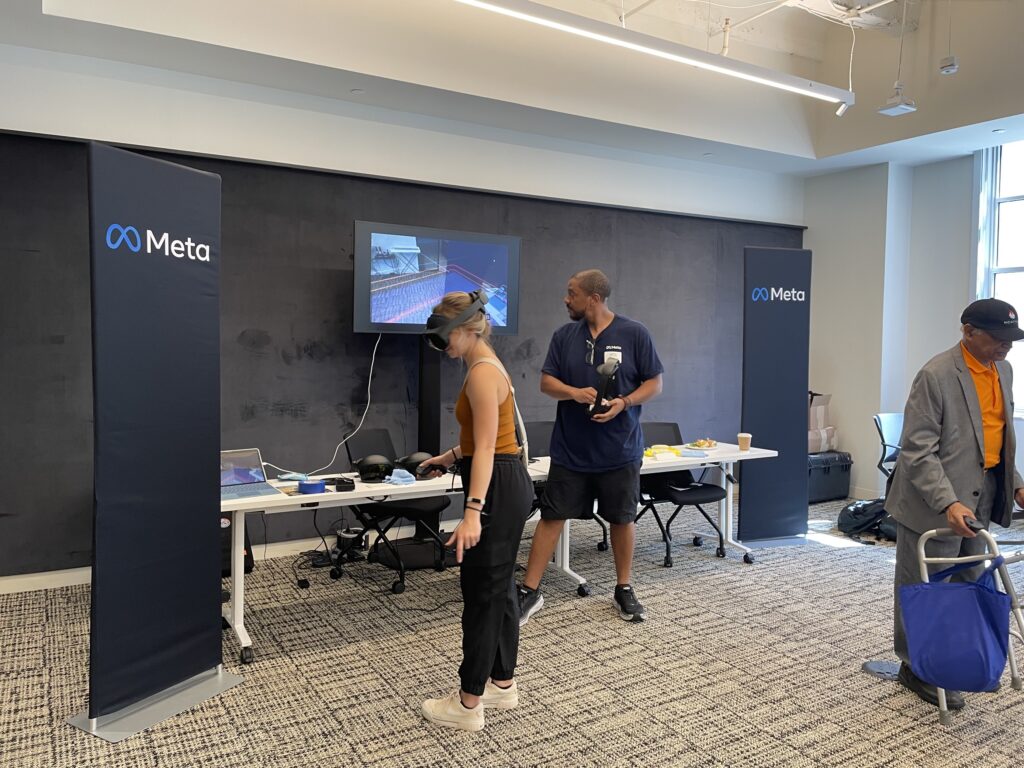
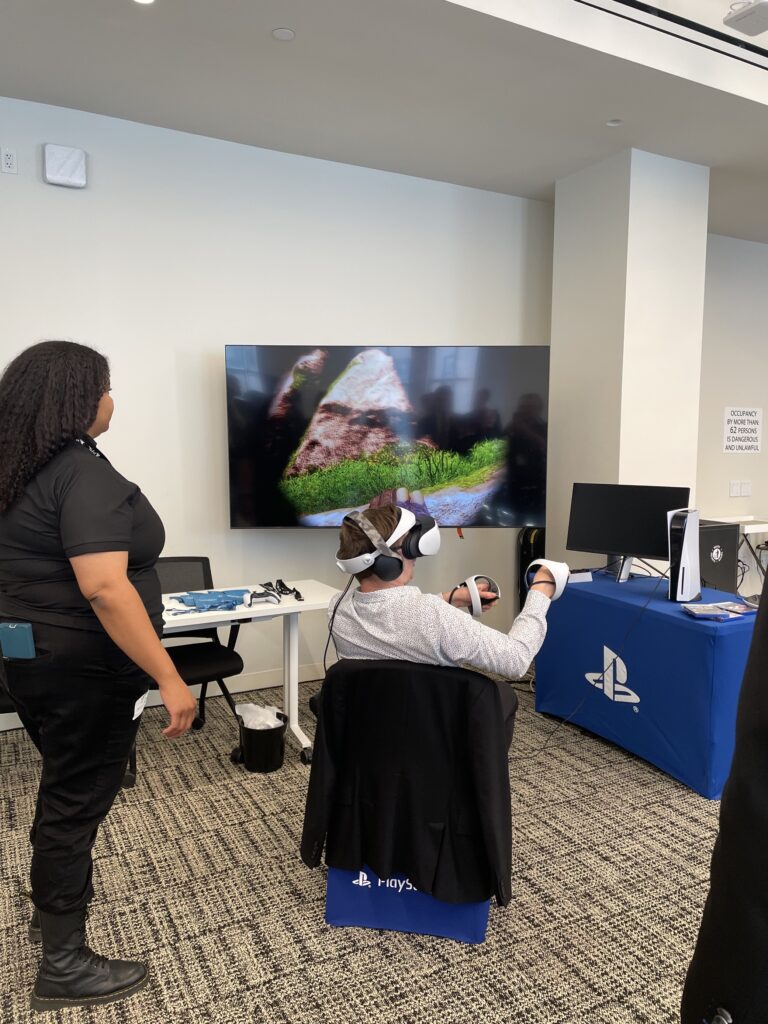
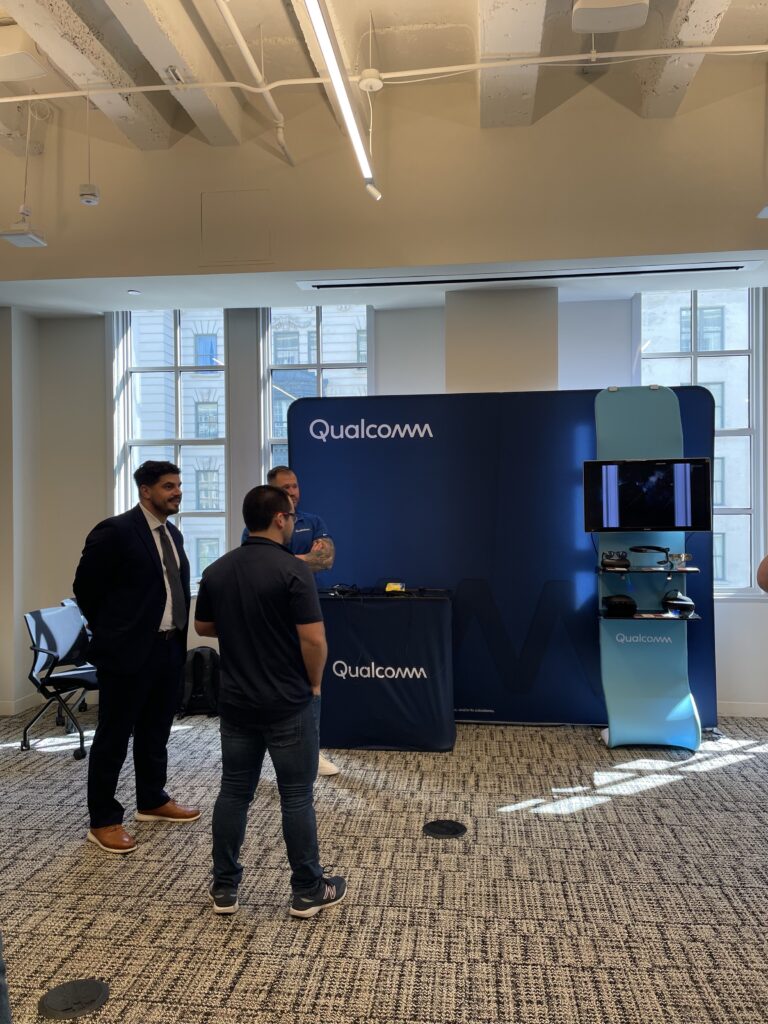
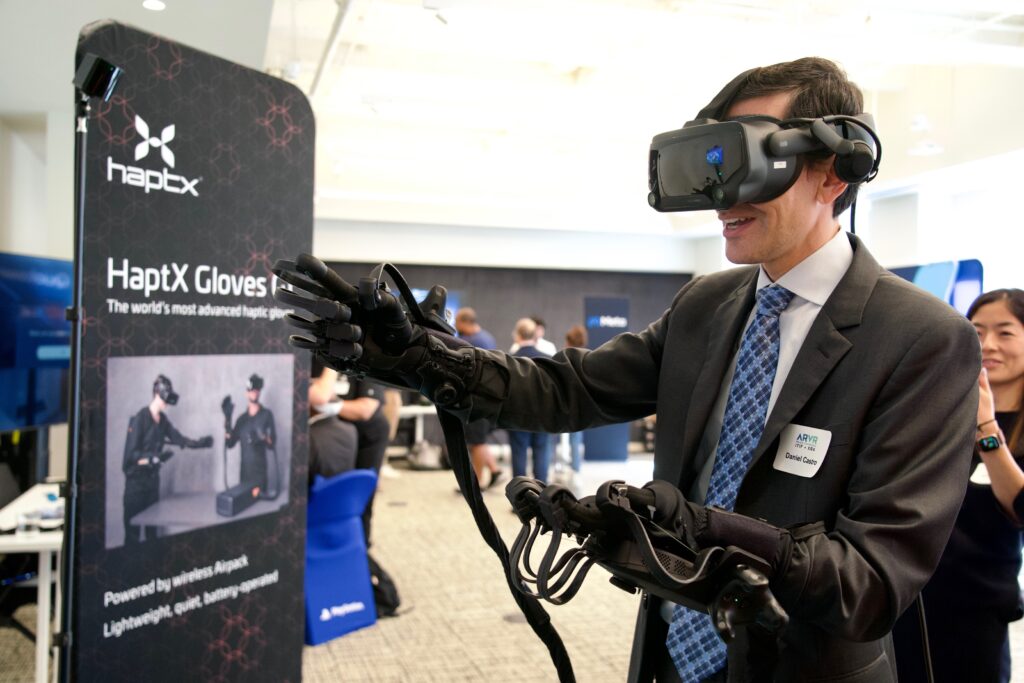
See ITIF’s YouTube page for a full recording of the conference.


